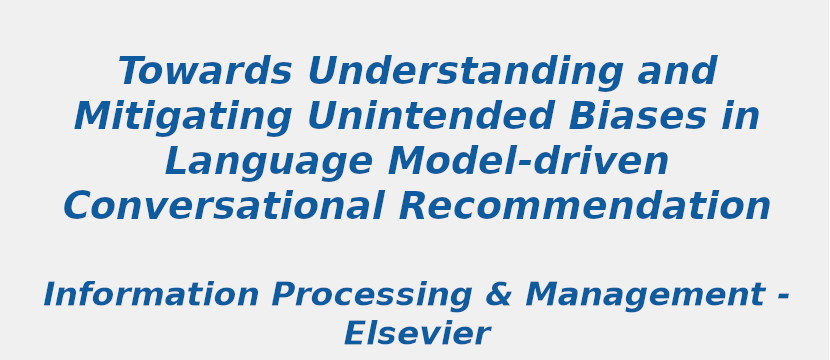Research Area: Machine Learning
Conversational Recommendation Systems (CRSs) have recently started to leverage pretrained language models (LM) such as BERT for their ability to semantically interpret a wide range of preference statement variations. However, pretrained LMs are prone to intrinsic biases in their training data, which may be exacerbated by biases embedded in domain-specific language data (e.g., user reviews) used to fine-tune LMs for CRSs. We study a simple LM-driven recommendation backbone (termed LMRec) of a CRS to investigate how unintended bias — i.e., bias due to language variations such as name references or indirect indicators of sexual orientation or location that should not affect recommendations — manifests in substantially shifted price and category distributions of restaurant recommendations. For example, offhand mention of names associated with the black community substantially lowers the price distribution of recommended restaurants, while offhand mentions of common male-associated names lead to an increase in recommended alcohol-serving establishments. While these results raise red flags regarding a range of previously undocumented unintended biases that can occur in LM-driven CRSs, there is fortunately a silver lining: we show that train side masking and test side neutralization of non-preferential entities nullifies the observed biases without significantly impacting recommendation performance.
Keywords:
Language models
BERT
Language models
Conversational recommendation
Author(s) Name: Tianshu Shen, Jiaru Li, Mohamed Reda Bouadjenek, Zheda Mai
Journal name: Information Processing & Management
Conferrence name:
Publisher name: Elsevier
DOI: 10.1016/j.ipm.2022.103139
Volume Information: Volume 60
